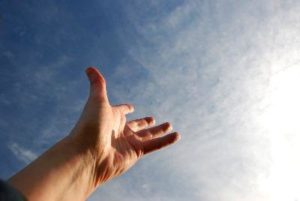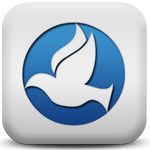Invitation to Worship
Sunday in Murray, UT
171 East 4800 South
Murray, UT 84107
10:00 a.m. Meeting for Worship -childcare provided
11:00 a.m. Fellowship & Food
Help support the Salt Lake Monthly Meeting of the Religious Society of Friends
Frequently Asked Questions
Do you have a prophet, minister or designated spiritual authority?
Friends in this meeting practice unprogrammed silent worship, without ministers or prepared ministry of any kind. Members and Attenders alike participate in the decision-making process for the meeting. Monthly there is a “Meeting for Worship with Attention to Business,” or business meeting. Decisions are arrived at through Unity. There is no voting, but a type of consensus is met which leads to the “sense of the meeting.” In worship we wait together silently in faith that divine spirit, or an irresistible sense that we have a message to share with our fellow worshippers, may visit us at any time. Visitors are encouraged to attend at least several meetings for worship to get a sense of our manner of worship and spoken ministry.
Do you acknowledge the Bible or other document as the complete word of a divine being given to man and therefore to be kept to as the ultimate religious authority?
We have no formal text, creed, no ritual, dogma, or liturgy. Friends practices have Christian roots, but we seek to be in the presence of the Sacred that lies beyond all scripture, all dogma, all words, all thought, and that is available within everyone.
What is the origin of the term Quaker?
There are two possible origins. One is that it is a reference to the “quaking” or trembling some experienced during silent worship when they felt the power of being in God’s presence and felt moved to speak. The second is that George Fox to the magistrate who was questioning him on charges of blasphemy (in 1650) that he should “Tremble at the word of the Lord”. The magistrate, Justice Bennett then coined the name “Quakers” for those who were followers of George Fox.
Do Quakers believe in heaven and hell?
The emphasis of a Quaker’s life is on present time―on experiencing and following the leadings of the Light in our lives today. Individual Quakers hold a variety of beliefs about what follows our lives on earth.
Where did Quakers come from?
The ideas that would become Quaker practice were first offered by George Fox in England in the 17th century. George Fox was born in Leicestershire in 1624, the son of a reasonably prosperous weaver and an intensely religious mother. A serious, introspective, physically powerful youth, he was early drawn to religious concerns and was genuinely shocked by the failure of the “professors”, that is, professing Christians, to live their beliefs.
At 19, he left home on a spiritual quest, during which he sought out and challenged the religious leaders everywhere to answer his questions. Nowhere did he find satisfaction, until in 1647, having “forsaken all the priests” and in despair, he heard a voice which said, “There is one, even Christ Jesus, that can speak to thy condition.” The direct experience changed his life, his religious conceptions, and his view of the human-Divine relationship. He devoted the rest of his life to sharing his new understandings.
In briefest summary, the principles at which he arrived included the following:
- That God is directly accessible to all persons without the need of an intermediary priest or ritual;
- That there is in all persons an in-dwelling Seed or Christ or Light (he used all these metaphors) which is of God and which, if they will but heed it, will guide them and shape their lives in accordance with the will of God;
- That true religion cannot be learned from books or set prayers, words, or rituals, which Fox called “empty forms,” but comes only from direct experiences of God, known through the Seed or Christ or Light within;
- That the power and love of God are over all, erasing the artificial division between the secular and religious so that all of life, when lived in the Spirit, becomes sacramental. The traditional outward sacraments, again characterized as empty forms, are to be discarded in favor of the spiritual reality they symbolize.
—Gordon Brown, “Introducing Quakers”
What are Testimonies?
Testimonies are, in more modern terminology, our values. For more than three hundred years, Friends have acted upon shared concerns through practices which historically have been distinctive and definitive. While the specifics of Friends’ practice have varied as times have changed, Friends today continue to have concerns and underlying beliefs similar to those of past generations. The word testimonies is used to refer to this common set of deeply held, historically rooted attitudes and modes of living in the world. Quakers’ most well know Testimony is the Peace Testimony. More on Testimonies.
What happens in Meeting for Worship—is it really silent?
Quaker worship, as practiced in this meeting, is based on silent waiting, where we expect to come into the presence of God. In this living silence, we listen for the still, small voice that comes from God through the Inward Light. Worshiping together in silence is a way for a community to be brought together in love and faithfulness.
During silent worship, anyone may feel inspired to give vocal ministry (speak out of the silence). After the person speaks the message, the silence resumes. Such messages may be offered several times during a meeting for worship, or the whole period of worship may be silent. Someone will signal the close of worship by shaking hands with another person, then everyone shakes hands with those seated nearby.
What should I wear to Quaker meeting?
Dress comfortably. In general, Quakers wear everyday clothes to meeting. You’ll find that there’s a range of style of dress by those attending worship. You are welcome to join us for worship as you are!

Continuing Activities
Second Sunday
11:30 a.m. – 1:00 p.m.
Business Meeting
Main floor meeting room.
Third Sunday
11:30 a.m. – 12:30 p.m. Educational Program, main floor meeting room.
Fourth Sunday
10:00 a.m. – Worship Sharing
Salt Lake Friends Meeting, 171 East 4800 South, Murray, UT 84107
 WELCOME TO SALT LAKE FRIENDS MEETING (QUAKERS)
WELCOME TO SALT LAKE FRIENDS MEETING (QUAKERS)